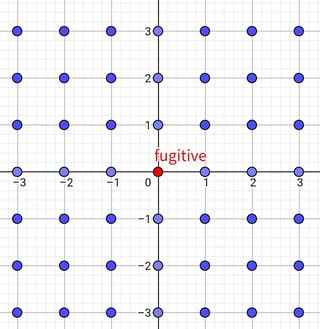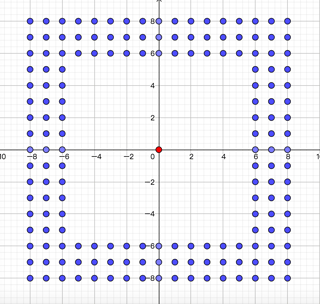The fugitive is at the origin. They move at a speed of $1$. There's a guard at $(i,j)$ for all $i,j\in \mathbb{Z}$ except the origin. A guard's speed is $\frac{1}{100}$. The fugitive and the guards move simultaneously and continuously. At any moment, all guards move towards the current position of the fugitive, i.e. a guard's trajectory is a pursuit curve. If they're within $\frac{1}{100}$ distance from a guard, the fugitive is caught. The game is played on $\mathbb{R}^2$.
Question: can the fugitive avoid capture forever?
What I know:
The fugitive will be caught if they remain in a bounded area.
The distance between two guards is always non-increasing, and is strictly decreasing unless the fugitive and the guards remain collinear. But the further away the guards are, the slower that distance decreases.
If there're only 2 guards, the fugitive will be caught if they make a straight-line dash into the gap between the guards, as long as the guards are sufficiently far away (see radiodrome). But the fugitive can always find a non-straight path to safely slip through between them.
The fugitive can escape if they're enclosed by a wall of guards that's not too "thick" (4 or 5 layers are fine), such as this (3 layers)
The shape (concentric circles or polygons) and size of the wall don't change the outcome.
Source: I asked the question sometime ago on mathexchange, where I received some really cool animation by martin. I was inspired by a very similar problem here on MO, with additional complication of randomness.


